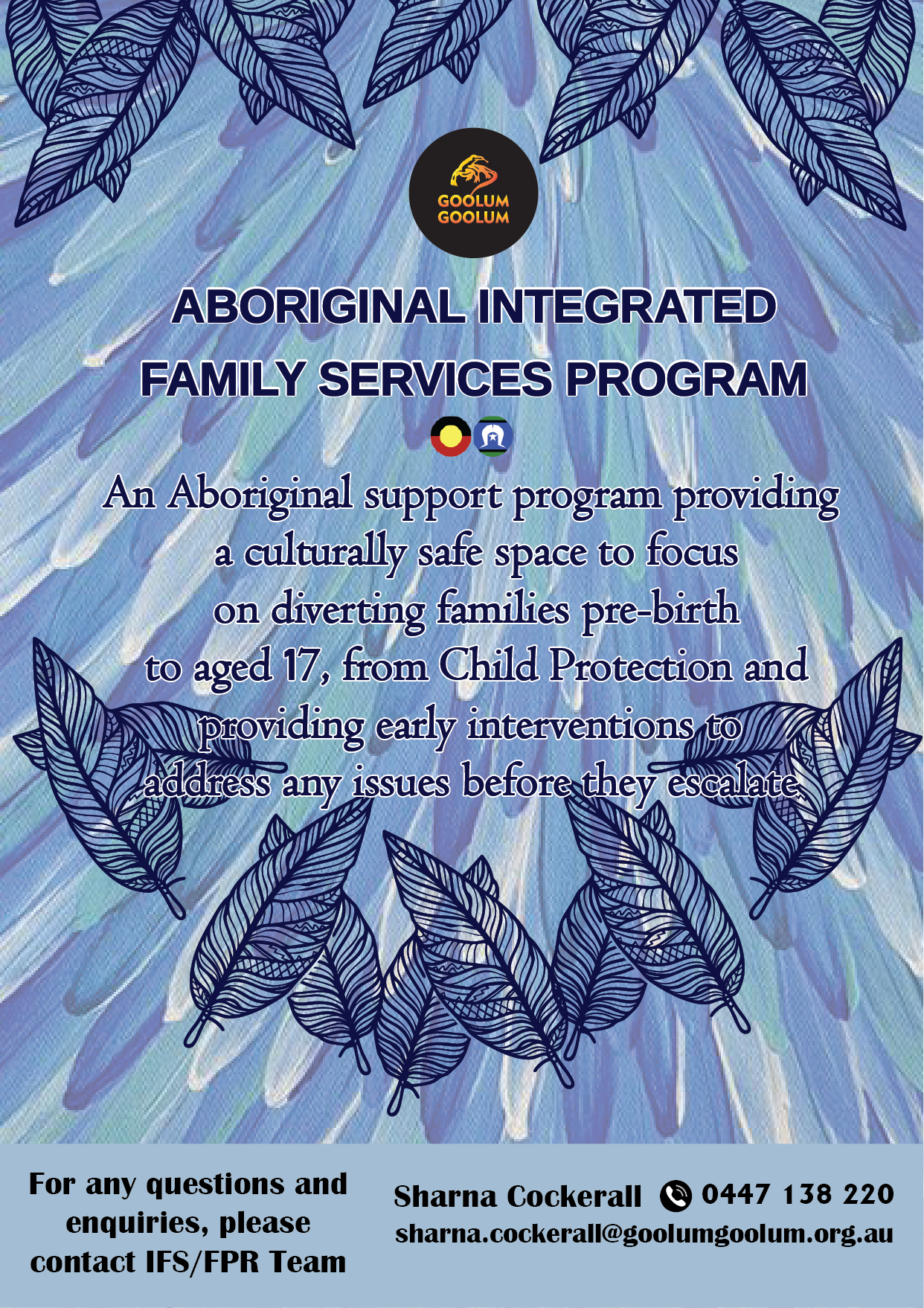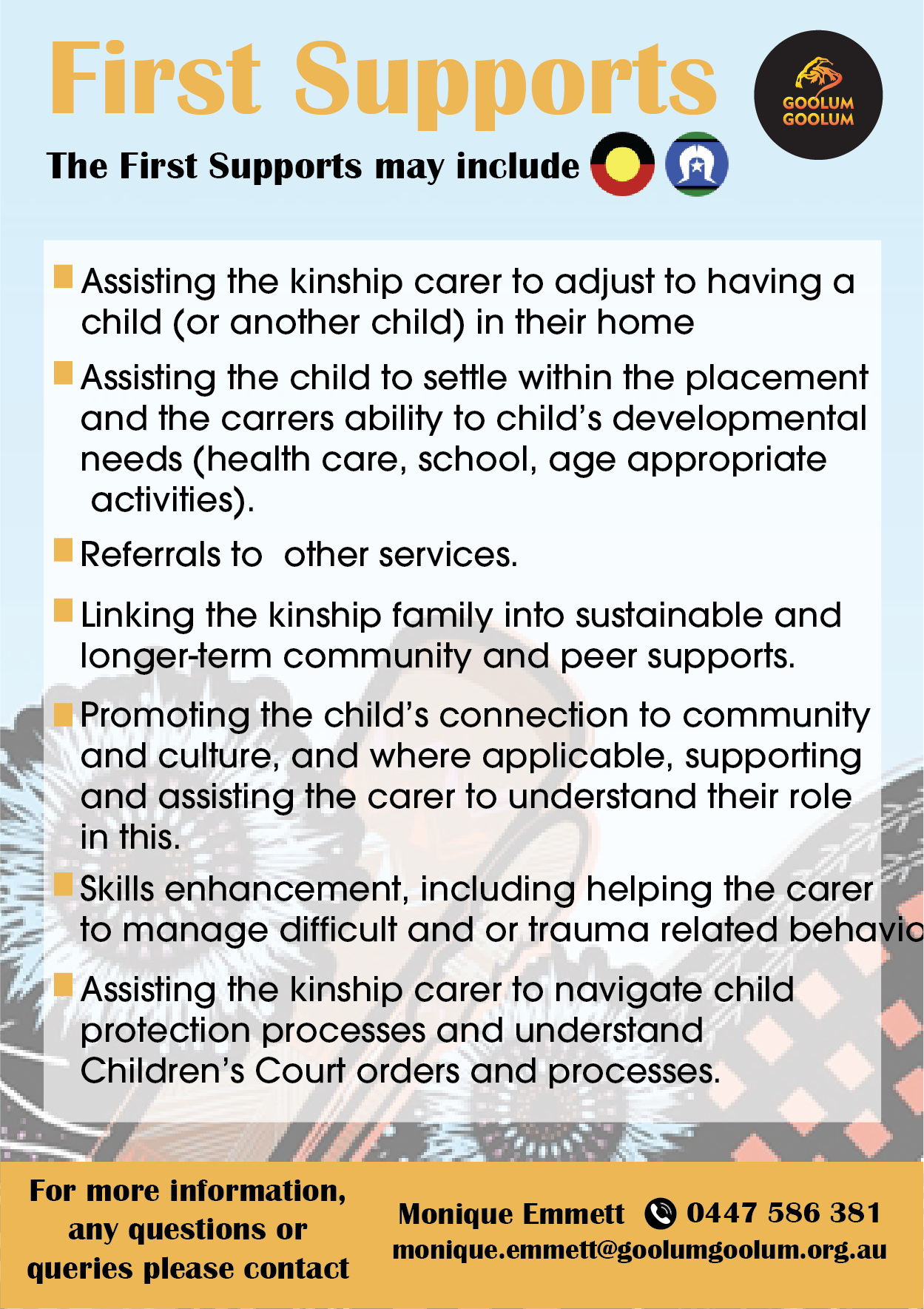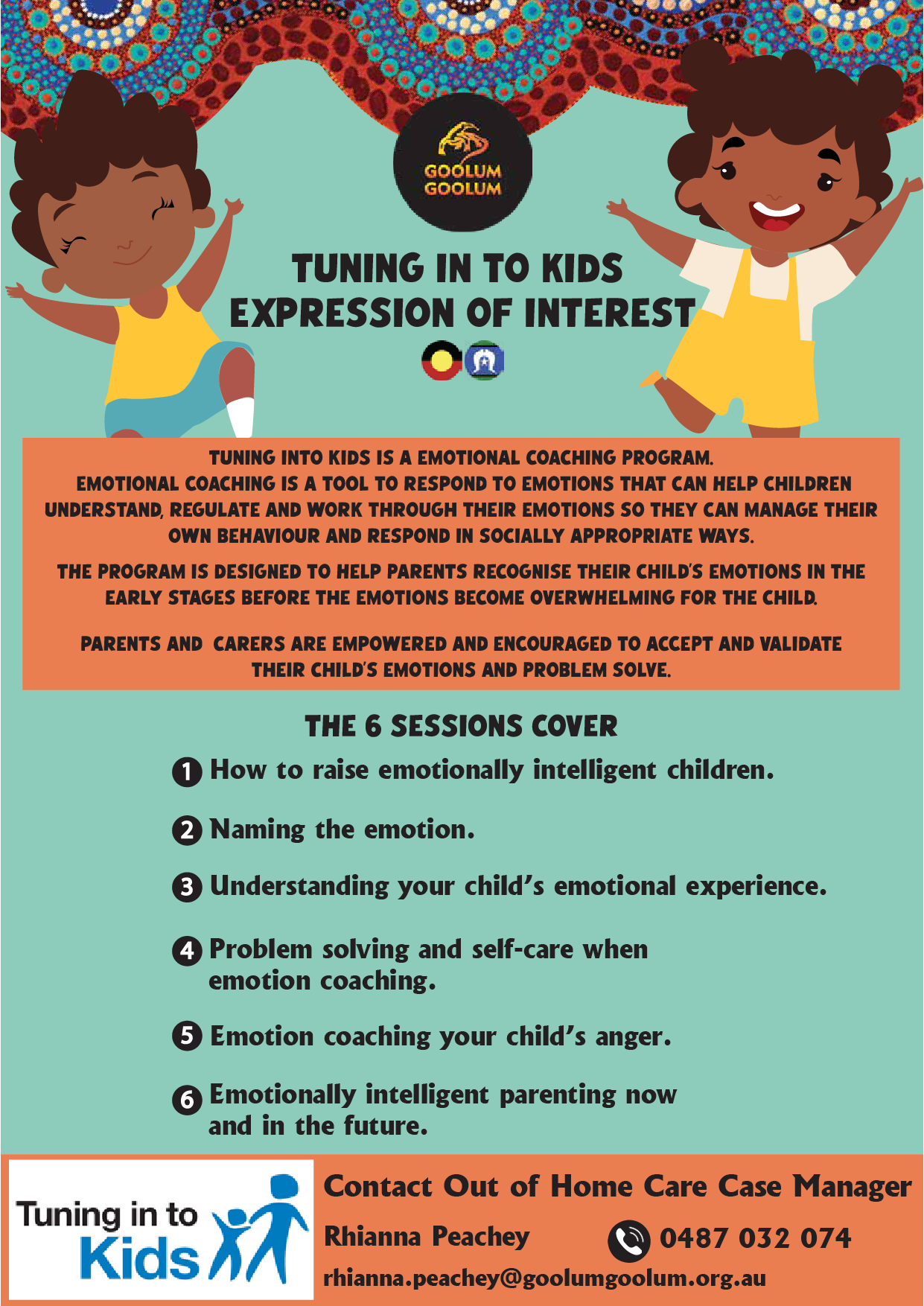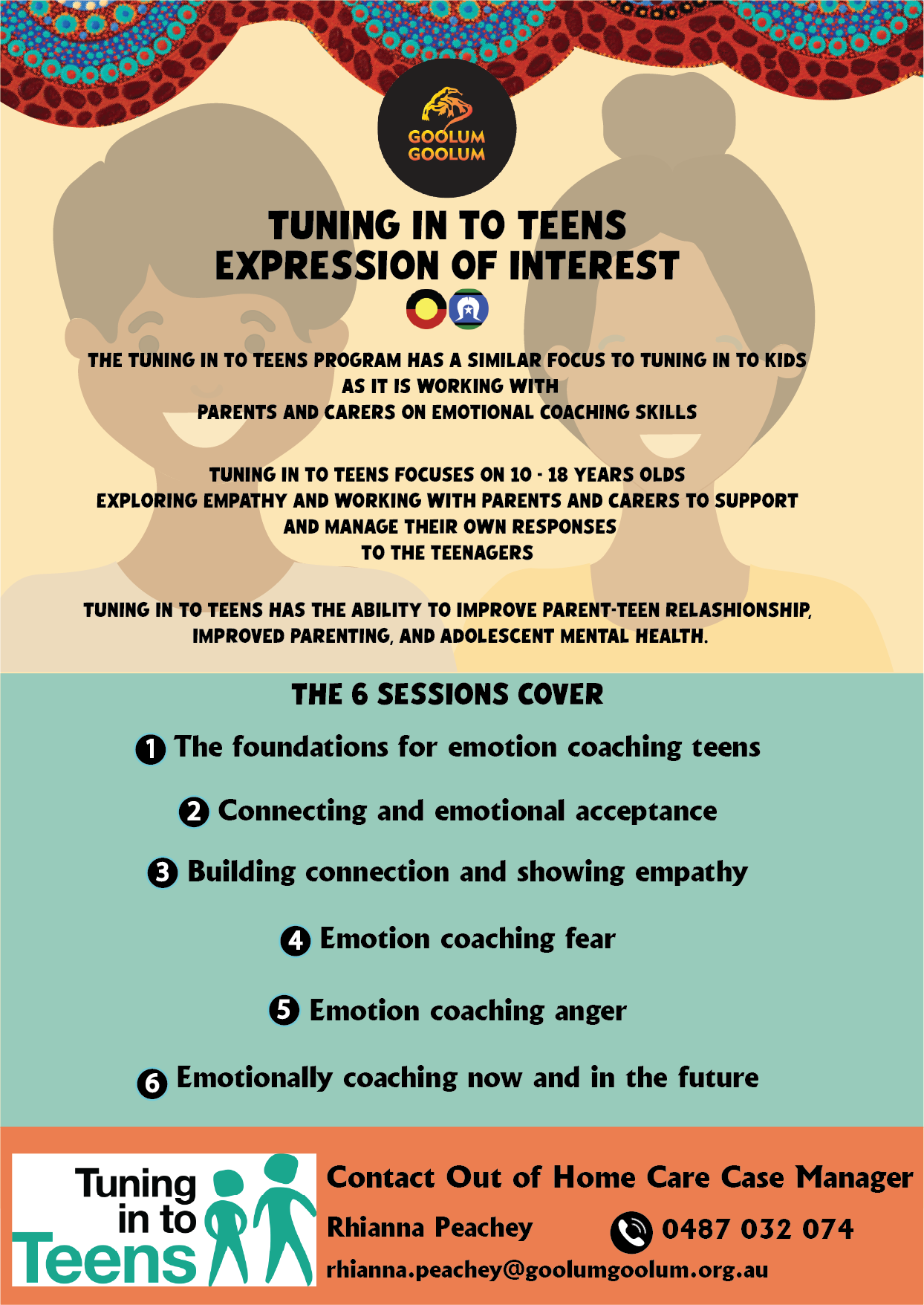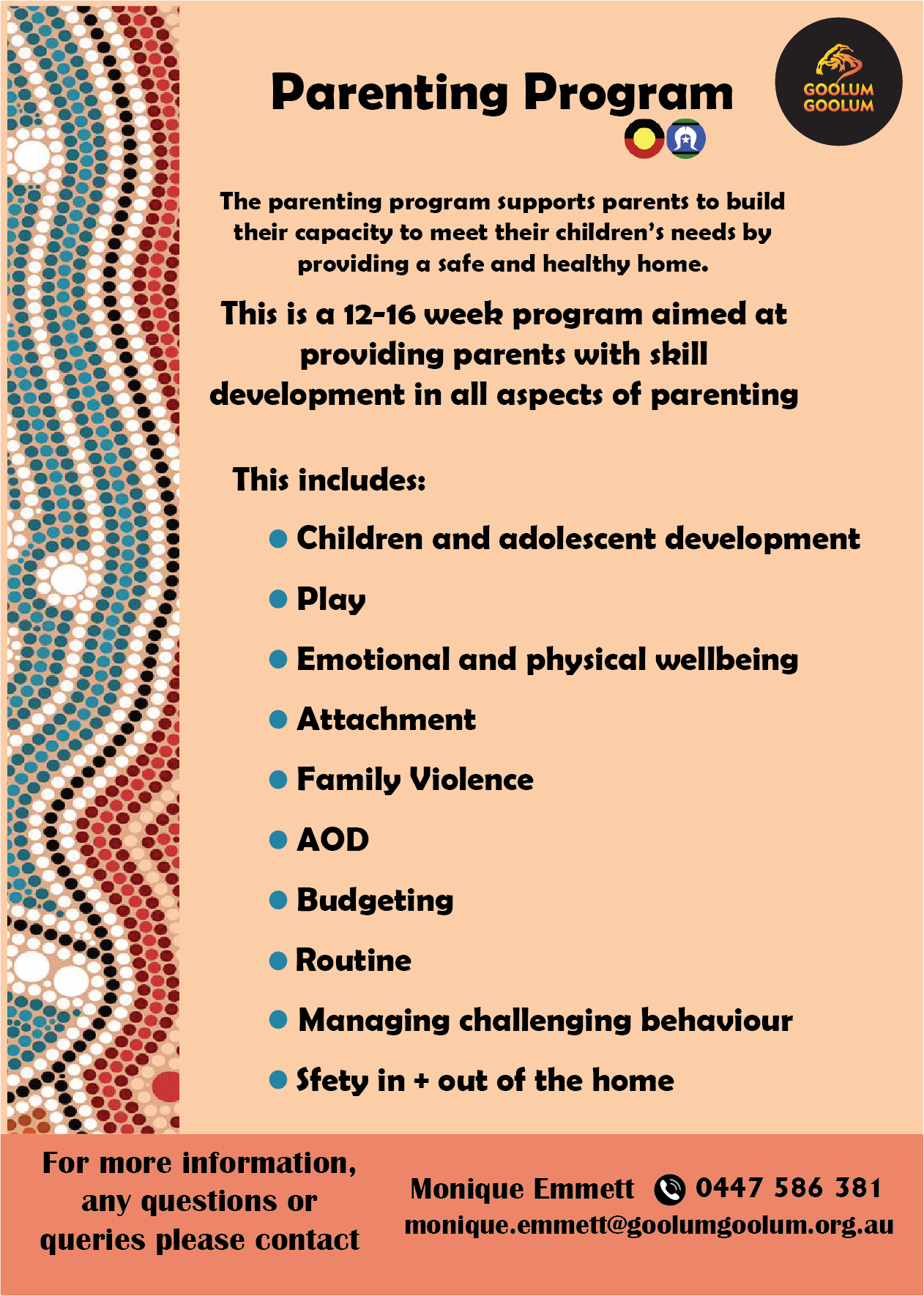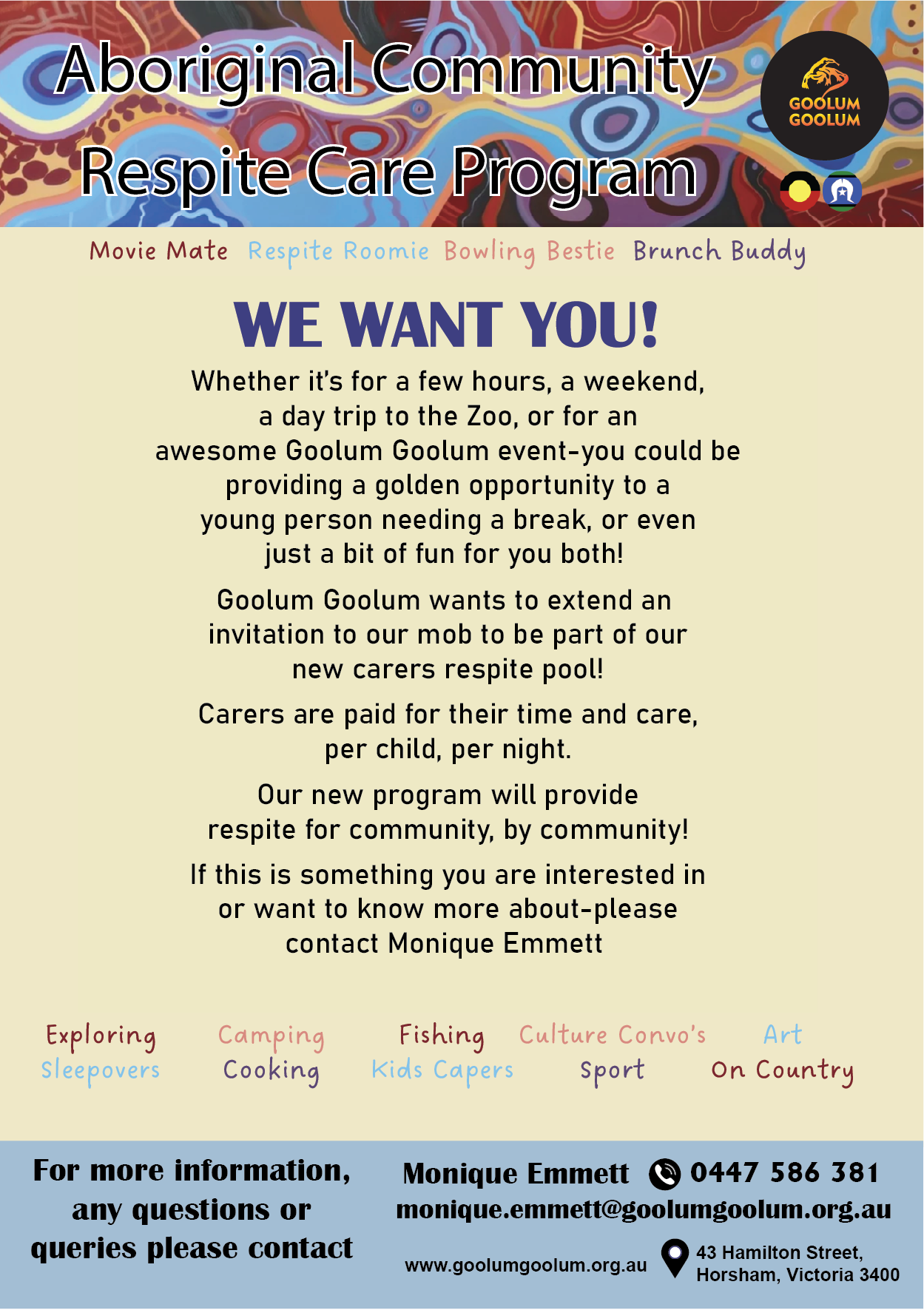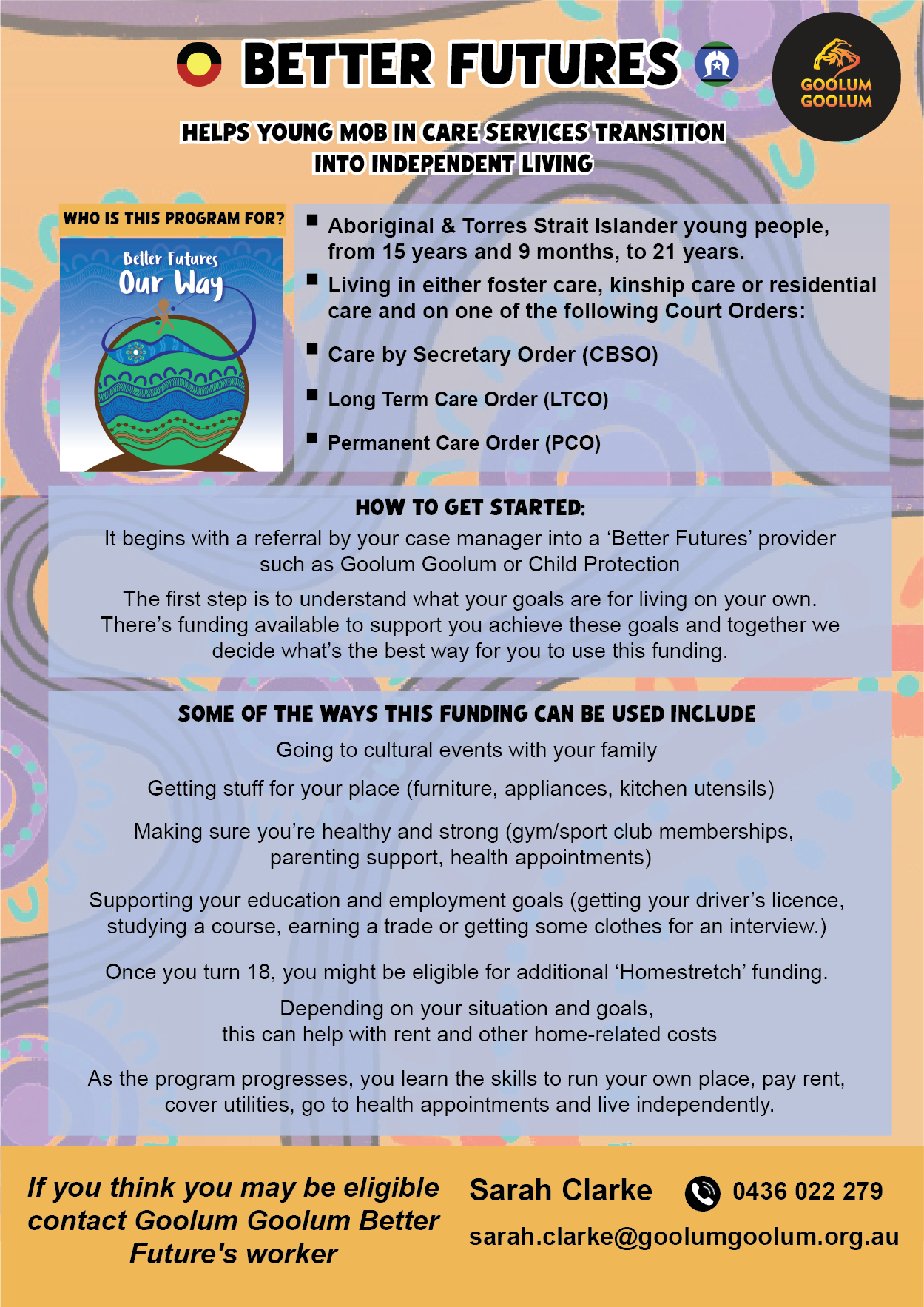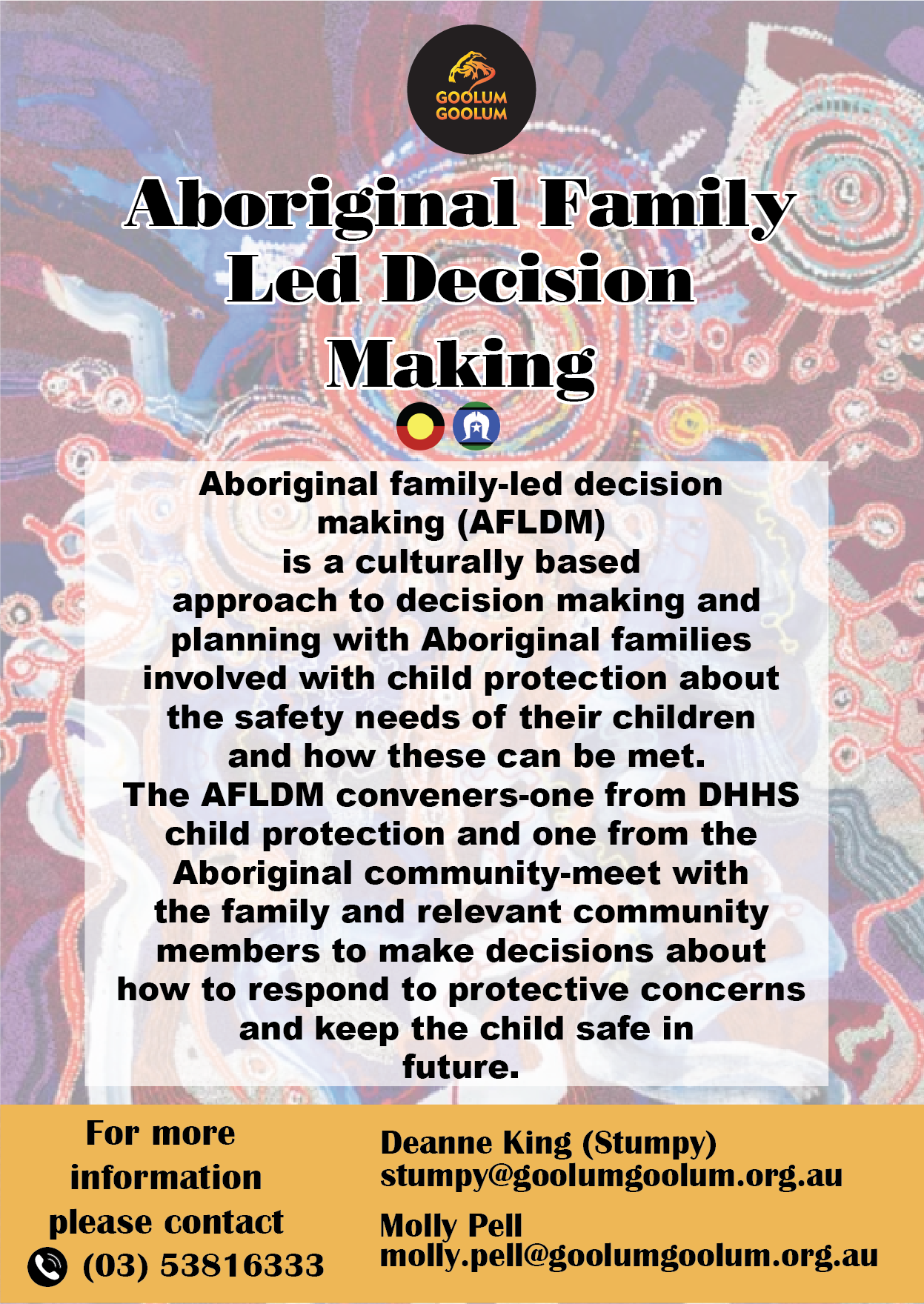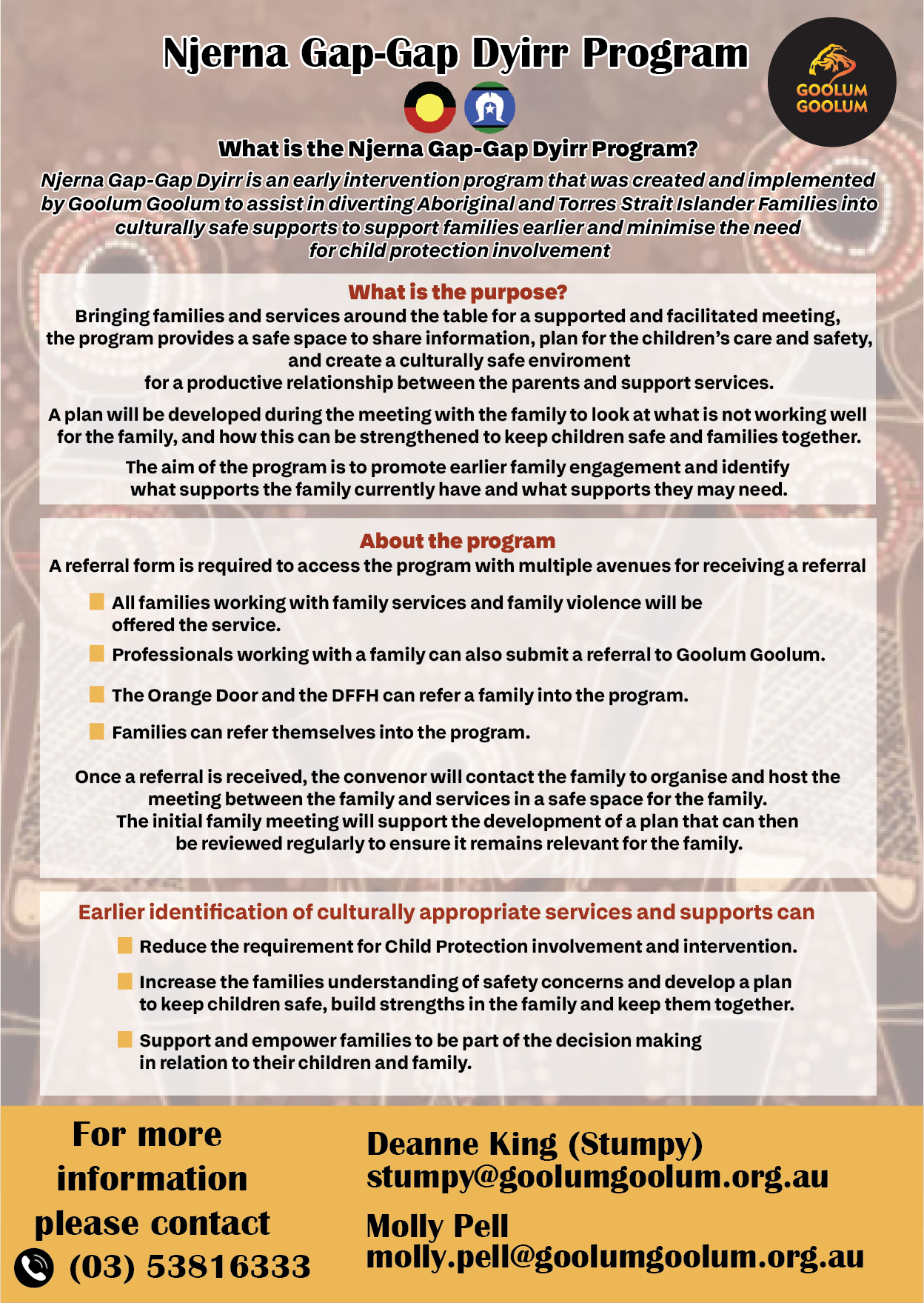Family Violence Case Management
Our Family violence program provides support to Aboriginal and Torres Strait Islanders People who are, or have experienced, Family Violence
Katrina Bonner
Contact: 0472 907 773
katrina.bonner@goolumgoolum.org.au
Jess Smith
Contact: 0407 550 359
jessica.smith@goolumgoolum.org.au
Aboriginal Integrated Family Services Program
An Aboriginal support program providing a culturally safe space to focus on diverting families pre-birth to aged 17, from Child Protection to address any issues before they escalate
Sharna Cockerall
Contact: 0447 138 220
sharna.cockerall@goolumgoolum.org.au
Family Preservation & Reunification Response
Referred from Child Protection, families in the FPPR program have access to intensive supports for Family Preservation & Reunification Orders.
*Life Skills Development, In home Supports, Referral Pathways, Case Management, Parenting Support
Sharna Cockerall
Contact: 0447 138 220
sharna.cockerall@goolumgoolum.org.au
First Supports
We support kinship carers to understand child protection and court processes and manage trauma-related behaviors. Our service also promotes children’s connection to culture and helps carers meet the child’s developmental needs, while linking families to community supports.
Monique Emmett
Contact: 0447 586 381
monique.emmett@goolumgoolum.org.au
Tuning in to Kids - Expression of Interest
Tuning in to Kids is an emotional coaching program that supports children’s emotional development. It teaches carers and parents how to respond effectively to children’s emotions. The approach helps children understand and manage their feelings. This leads to improved behaviour and stronger emotional regulation. The program fosters healthier relationships and positive social skills.
Rhianna Peachey
Contact: 0487 032 074
rhianna.peachey@goolumgoolum.org.au
Tunning in to Teens - Expression of Interest
Tuning in to Teens is an emotional coaching program for parents and carers of young people aged 10 to 18. It helps strengthen parent-teen relationships and supports adolescent mental health. The program builds empathy and guides adults to manage their own responses to teenagers. Like Tuning in to Kids, it focuses on developing emotional coaching skills. This approach encourages better communication and emotional connection within families.
Rhianna Peachey
Contact: 0487 032 074
rhianna.peachey@goolumgoolum.org.au
Parenting Program
This 12–16 week parenting program helps parents build the skills needed to raise healthy, happy children. It focuses on strengthening their ability to create a safe and supportive home environment. The program offers practical tools to improve daily parenting routines and decision-making. Participants gain confidence in meeting their children’s emotional, physical, and developmental needs. Overall, it empowers families to thrive through positive and informed parenting.
Monique Emmett
Contact: 0447 586 381
monique.emmett@goolumgoolum
Aboriginal Community Respite Care Program
Goolum Goolum is launching a new community-led respite program and invites mob members to join the carers pool. Carers will be paid for their time, per child, per night. This program offers flexible opportunities—from a few hours to a weekend, day trips, or special events. It’s a chance to support young people needing a break while enjoying meaningful experiences together. If you're interested or want to learn more, contact Monique Emment
Monique Emmett
Contact: 0447 586 381
monique.emmett@goolumgoolum
Better Futures
Helps young people prepare to live independently through support and funding. After a referral from your case manager to a provider such as Goolum Goolum, you can access help with rent, bills, education, health, and cultural activities. As you gain skills to manage on your own, you may also be eligible for extra support through Home Stretch after turning 18.
Sarah Clarke
Contact: 0436 022 279
sarah.clarke@goolumgoolum.org.au
Aboriginal Family Led Decision Making (AFLDM)
AFLDM is a cultural approach to child protection that involves Aboriginal families in planning for their children's safety. Conveners from Child Protection and the Aboriginal community work together. They meet with the family and community to address concerns. The goal is to keep children safe with strong family involvement.
Stumpy
Contact (03) 5381 6333
stumpy@goolumgoolum.org.au
Njerna Gap-Gap Dyirr Program
Njerna Gap‑Gap Dyirr is an early‑intervention program run by Goolum Goolum that offers culturally safe support for Aboriginal and Torres Strait Islander families. It guides families toward services that strengthen parenting and wellbeing long before child‑protection action is required. By intervening early, the program aims to reduce the need for formal child‑protection involvement.
Stumpy
Contact (03) 5381 6333
stumpy@goolumgoolum.org.au



